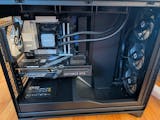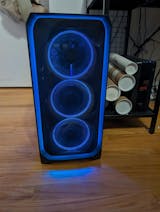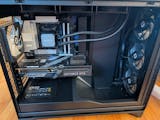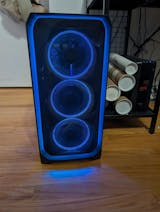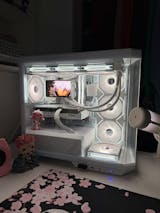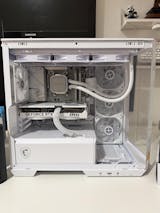Remember the days when building or upgrading your PC meant scouring the market for the best sound card you could afford? Back in the 90s and early 2000s, sound cards were a staple in the PC gaming and audio enthusiast communities. They provided the high-quality audio that onboard solutions just couldn’t match, and owning one was a point of pride for many. Fast forward to today, and sound cards have mostly vanished from the spotlight. So, what happened? Where did sound cards go?
The Early Days: When Sound Cards Were King
In the early days of personal computing, sound was an afterthought. The first PCs either lacked sound altogether or relied on basic beeps from internal speakers. Enter the sound card—a dedicated piece of hardware designed to deliver rich, full audio that transformed gaming, music, and multimedia experiences. Companies like Creative Labs, with their legendary Sound Blaster series, dominated the market. Gamers and audiophiles alike could finally enjoy immersive soundscapes, thanks to these powerful add-ons.
Sound cards weren’t just about better sound quality—they also provided essential features like MIDI support, surround sound, and hardware acceleration. This made them crucial for anyone serious about their PC’s audio capabilities.
The Onboard Revolution: Good Enough is... Good Enough?
The decline of the sound card began with the steady improvement of onboard audio solutions. Motherboard manufacturers started integrating audio chips that, while not as powerful as dedicated sound cards, offered quality that was “good enough” for most users. Realtek, a key player in this space, became the go-to for onboard audio, providing decent sound without the need for extra hardware.
As these onboard solutions improved, they began to include features that were once exclusive to sound cards, such as multi-channel audio, digital outputs, and even software enhancements. For many users, the convenience of having built-in audio that met their needs outweighed the benefits of investing in a separate sound card.
The Impact of USB and External Audio Solutions
Another nail in the coffin for traditional sound cards was the rise of USB audio interfaces and external DACs (Digital-to-Analog Converters). These devices offered high-quality audio in a portable and often more affordable package. They became popular among musicians, podcasters, and anyone looking to upgrade their audio setup without opening up their PC.
USB headsets and gaming peripherals also became more common, often bypassing the need for a sound card altogether. With built-in audio processing and surround sound capabilities, these devices provided an all-in-one solution that appealed to gamers and streamers.
The Niche Market: Where Sound Cards Still Thrive
While sound cards have largely disappeared from the mainstream, they’re not entirely extinct. Enthusiasts, audiophiles, and professional musicians still turn to high-end sound cards for the best possible audio quality. Brands like Creative, ASUS, and EVGA continue to produce sound cards that cater to this niche market, offering features like superior DACs, customizable sound profiles, and studio-grade outputs.
For those who demand the absolute best from their audio setup—whether it’s for gaming, music production, or home theater—a dedicated sound card can still make a significant difference. But for the average user, the convenience and quality of modern onboard audio are more than enough.
The Future of Sound Cards
So, where does that leave sound cards today? While they’re no longer a must-have for most PC builds, they’ve found a new role as a specialized tool for those who need the highest audio fidelity. The market may be smaller, but it’s still alive and well, with companies continuing to innovate and push the boundaries of what sound cards can offer.
In a world where convenience often trumps quality, sound cards have adapted by focusing on those who value top-tier audio performance. They may no longer be a staple in every PC build, but for those who appreciate the nuances of sound, they’re as essential as ever.
And so... The Legacy of Sound Cards
The journey of the sound card is a testament to the ever-evolving nature of technology. What was once a critical component of every serious PC has become a niche product, overshadowed by advancements in onboard audio and the rise of external solutions. Yet, for those who remember the golden age of PC audio, sound cards will always hold a special place in the history of computing. And who knows? As technology continues to advance, we might see a new era where sound cards make a comeback, redefined for the next generation of audiophiles and gamers.
Until then, the humble sound card remains a powerful reminder of how far we’ve come—and how much further we can go in the pursuit of perfect sound.












